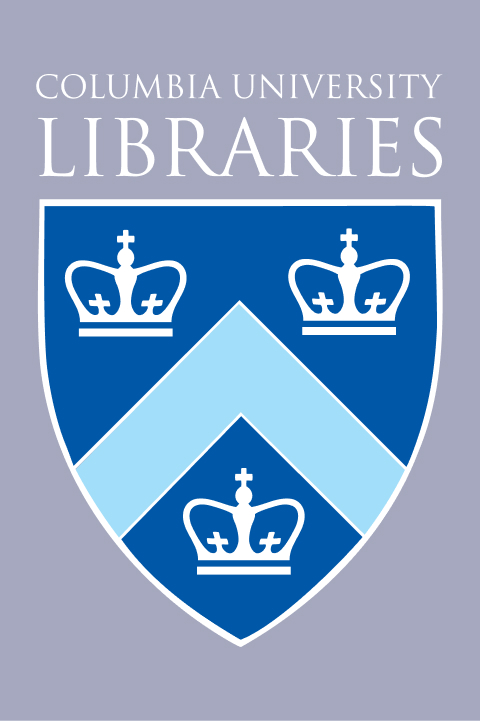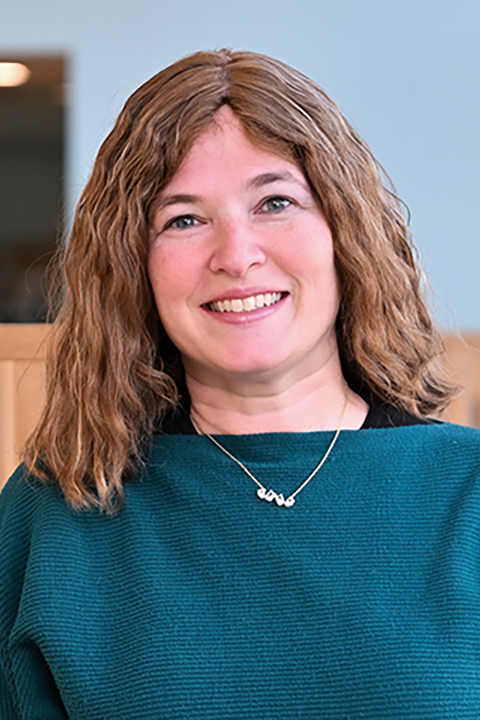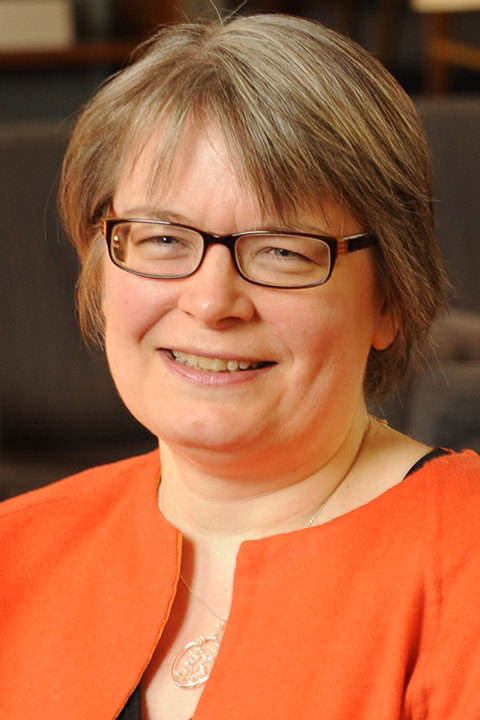Middle East and Islamic Studies
This document outlines the Libraries’ general policies regarding collecting materials on Middle East and Islamic Studies, but it is not intended to be a rigid set of rules; suggestions from faculty and students are always welcome. Faculty and students at Columbia have access to one of North America’s largest research collections in Middle East and Islamic Studies—both in the vernacular languages of these regions, as well as in English and Western European languages.
The Columbia University Libraries began to collect printed books and manuscripts related to the Middle East and Islam after 1886, when Williams Jackson and Richard Gottheil were first appointed to teach Semitic and Indo-European languages. In the early 1930s, after the establishment of its Rare Book & Manuscript Library (RBML), Columbia received large donations of manuscripts from the mathematician David Eugene Smith and the publisher George Plimpton. Their donations contained several hundred of manuscripts in Arabic script. Smith also advised Plimpton on Islamic manuscript purchases. In 1959, RBML obtained 49 Arabic manuscripts relating to Quran studies and lexicography from the research library of Arthur Jeffery who in 1938 had succeeded Gottheil as Columbia’s professor of Semitic languages. Most of these strictly utilitarian manuscripts were produced in Egypt where Jeffery had taught from 1921 until 1938 at the School of Oriental Studies at the American University in Cairo.
The Librarian for Middle East and Islamic Studies is responsible for collecting print and electronic publications pertaining to Afghanistan, Algeria, Bahrain, Egypt, Iran, Iraq, Israel/Palestine, Jordan, Kuwait, Lebanon, Libya, Mauritania, Morocco, Oman, Qatar, Saudi Arabia, Sudan, Syria, Tunisia, Turkey, the United Arab Emirates, and Yemen.
Armenian materials are also the responsibility of the Librarian for Middle Eastern and Islamic Studies. Each year, via arrangement with local and foreign vendors, gifts, and special acquisitions, Columbia adds thousands of new titles to the collections.
Informal cooperative arrangements with New York University, Princeton University, and Harvard University Library further expand the resources at the disposal of students and faculty both locally and within the Borrow Direct & Ivy Plus Library Confederation by reducing duplication, and ensuring geographical and linguistic coverage for the entire region.
As an interdisciplinary collection, Middle East and Islamic Studies materials can be found in libraries across Columbia, but the majority of books in the collection are found in Butler Library (History and Humanities), Lehman Library (International Affairs and Social Sciences), the Rare Book & Manuscript Library, Avery Architectural & Fine Arts Library and the Burke Library (Religion). Additional materials can be found in the Music and Business libraries as well.
a. Undergraduate
Columbia College, Barnard College, or General Studies students in various academic departments with a major, minor, or concentration on Middle East and Islamic Studies; students working on an independent junior or senior thesis related topics; or CC, BC, GS, and SEAS students enrolled in a course with Middle East and Islamic Studies related content.
b. Graduate & Professional Schools
MA and PhD students in the department of Middle Eastern, South Asian, and African Studies (MESAAS), Middle East Institute, Departments of Political Science, History, Religion, Art and Architecture and School of International & Public Affairs.
c. Institutes, Interdisciplinary Programs, etc.
Materials are acquired to support the instructional and research programs of the University. They generally fall under the aegis of the Department of Middle Eastern, South Asian & African Studies, the Middle East Institute (Department of Education National Resource Center), the Turkish Language Program, the Center for Iranian Studies, Center for the Study of Muslim Societies, the Armenian Program, the Center for Palestine Studies, and the Institute for Israeli and Jewish Studies covering broad range of subjects.
d. Course Reserves
Selection for course reserves is up to individual faculty members. The Librarian will do whatever is possible to secure specific materials absent from the collection.
a. Print
The Libraries extensively collects print materials in all formats from and about the Middle East in the fields of: Anthropology, Archaeology, Architecture, Art and Art History, Decorative Arts, Economic History, Environmental Issues, Ethnic Minorities, Folklore, Graphic Arts, Literature, Graphic Novels, Film Studies, History from ancient times to more recent decades, History of Science and Technology, Human Ecology, Human Rights, International Relations. Special emphasis is given to Political Science - the study of Israeli-Palestinian conflict, democracy, elections, peace-building, Islamic religious and social movements, terrorism, and war. The Libraries’ selectively collects publications on subjects in animal, plant, medical, and physical sciences related to the Middle East. Juvenile literature about and from the Middle East is generally excluded.
Titles in English dealing with history, literature, the performing arts, as well as biography, are located in the Butler Library. English-language titles dealing with topics in the social sciences are located in Lehman. ReCAP is the default location for works about the region in other Western European languages.
Most of the Middle East and Islamic studies print collections are found in Butler Library General Stacks and Milstein Undergraduate Library, Lehman Social Sciences Library, Thomas J. Watson Business & Economics Library, Avery Architectural & Fine Arts Library, Music & Arts Library, Burke Library at Union Theological Seminary, Social Work Library, and ReCAP, the Libraries’ off-site storage facility.
b. Digital Collections
The Libraries subscribes to several hundred Middle East- and Islamic Studies-related electronic journal titles, electronic book titles, and licensed databases.
Licensed databases with dedicated Middle East- and Islamic-related content include the Brill Publisher’s suite of Middle East and Islamic reference sources, Index Islamicus, the Middle East and Central Asian Studies database, Early Arabic Printed Books from the British Library, Oxford Islamic Studies Online, Oxford Bibliographies in Islamic Studies, Confidential Print – Middle East, Cambridge Histories Online and KotobArabia collection of e-books, Oxford Handbooks online, Foreign Office files for the Middle East, Confidential U.S. State Department central files. Arab dissident movements, Islamic Movements in the Arab World, The Slave Trade into Arabia.
These resources are complemented by a growing number of general electronic resources that have substantial Middle East related content, e.g. ISI Emerging Markets and Factiva news, government, business and financial/economic information, the Foreign Broadcast Information Service Daily Reports, and the MideastWire (news translations from regional sources). Library also provides access to specialized software LexiQamus Ottoman Turkish dictionary and NovoVerus, Arabic OCR Software in the Digital Humanities Center.
The Middle East Studies Librarian maintains Virtual Library for Middle East Studies, a library of annotated web links to current research and historical information about and from the Middle East as well as AMIR (Access to Mideast and Islamic Resources) online tool to assemble and distribute information on Open Access material relating to the Middle East.
Since 2008, Columbia University Libraries’ Center for Human Rights Documentation and Research sponsors the Human Rights Web Archive. The Middle East Studies Librarian contributes to this searchable collection of archived copies of human rights websites created by non-governmental organizations, national human rights institutions, tribunals and individuals. A portion of the content for this on-going born-digital project related to human rights issue in the Middle East region.
c. Media
The libraries’ media center in the Butler Media Collections houses a growing and heavily consulted collection of audiovisual materials from and about the Middle East on DVD and VHS. It currently holds large number of documentary and feature films some of which are unique holdings in North American libraries.
Film and sound recordings on CD or DVD are selectively acquired for the Music and Arts Library, Butler Library, and ReCAP. Spoken word recordings are only occasionally acquired. Most of the media collections are acquired by the Middle East and Islamic Studies Librarian, but many titles are also acquired by Librarian for Film and Performing Arts who is primarily responsible for collecting media in general. Columbia University Libraries own or subscribe to large online media collections with significant Middle East related content, such as: Anthropology Collection; Docuseek 2; Filmmakers Library; and Films on Demand—World Cinema Video Collection, Contemporary World Music. Streaming media titles are selectively acquired or leased and made available on course reserves based on faculty requests and affordability.
d. Languages Collected
By far the largest of the vernacular collections is in Arabic followed by Turkish, Persian and Hebrew. There are also smaller collections in Kurdish, Armenian, Berber, Maltese, Syriac, Pahlavi, etc.
Books about the Middle East and North Africa are collected in all Western and occasionally in Slavic languages.
e. Chronological Focus
While the Libraries collects material on the Middle East from earliest antiquity, the emphasis on the period from the rise of Islam, i.e. the 7th century onward. By the same token, we acquire materials published in all periods, but our major effort is to keep up with current publications.
f. Geographical Focus
The geographic area covered consists of North Africa; including Mauritania, Morocco, and the Western Sahara, Algeria, Tunisia, Malta, Libya, Egypt, Sudan; and the Middle East; including Turkey, Cyprus, Syria, Lebanon, Israel, Jordan, Saudi Arabia, Kuwait, Bahrain, Qatar, United Arab Emirates, Oman, Yemen, Iraq, Iran, Afghanistan and Armenia. Materials about and from all other territories in the Africa region, including Madagascar and the other western Indian Ocean Islands, are selected primarily by the African Studies Librarian and covered in collection policy statement for Africa (South of the Sahara). Materials from and about Central Asian and South Asia are handled by Librarian for Russian, Eurasian & East European Studies and South Asian Studies Librarian respectively.
g. Imprint Dates Collected
Most routine collecting involves current and recent (+/- 3 years) imprints. When antiquarian acquisitions are offered via gift or purchase, no specific chronological ranges are established in advance; rare or unique materials from any period may be considered.
Retrospectively, older, high-use or important materials that is not readily available through our partner borrowing consortia (Borrow Direct and ReCAP), is also acquired.
Columbia University Libraries selectively collects manuscripts, rare books, periodicals, and archival materials relating to the Middle East and Islam which are held mostly by the Rare Book & Manuscript Library. The most significant of these collections are partially digitized Islamic manuscripts, Persian lithographs from Said Nafisi library, Palestinian films collection from the Dream of the Nation project. The Burke Library at the Union Theological Seminary has Robert College records of American-sponsored college in Turkey, records of American missionaries in the Middle East and papers related to various diplomats, intellectuals, and businesspeople who served in the Middle East.
The Libraries selectively acquire new materials for a non-circulating collection in Islamic Studies Reading Room located in 602 Butler Library. The Islamic Studies Reading Room contains some 4,500 non-circulating items on various facets of Islam and Islamic Studies. This core non-circulating collection features sourcebooks and introductions to Islam, in addition to reference texts on Islam, canonical, classical, and secondary works on topics related to Islam (e.g. Qur’anic exegesis and commentary (Tafsir), Hadith and Sunna, Islamic Historiography, Islamic Law, Islamic science and philosophy, and Sufism. The Room is not intended to be a comprehensive source for the study of these subjects, but rather a space in which interested persons can browse and consult major reference works in the field. The materials are mostly in Arabic, Persian, Turkish, and Urdu as well as in English, German, and French.
a. Consortia and Collaborative Collecting with Other Institutions
The Library participates in various inter-institutional cooperative endeavors on the local, national and international level. Middle East and Islamic print collections are greatly enhanced by the university’s participation in several consortia: ReCAP Shared Collection (with Harvard University, Princeton University, and The New York Public Library-Research Branches); Borrow Direct consortium of Ivy Plus Library Confederation; and The Manhattan Research library Initiative (MaRLI), a partnership with New York University and The New York Public Library-Research Branches. Materials not acquired directly by Columbia are also available via interlibrary loan through Columbia’s ongoing full institutional membership in The Center for Research Libraries and its Cooperative Middle East Materials Project (MEMP).
b. Selection for ReCAP
Due to space limitations and the large number of annual acquisitions, a significant amount of the material is sent to ReCAP, our off-site storage facility.
Generally encyclopedias, dictionaries and other reference works e.g. biographical dictionaries, bibliographies, directories, yearbooks, indexes as well as other reference works and major authors are kept on-site.
Material in the vernacular and European languages other than English are kept off-site.
Duplication of titles is limited to works identified by faculty as being central to a specific course. In these cases, no more than a few copies are obtained, one of which should be placed by the faculty member on reserve. Whenever possible, an e-book format is preferred for duplication of a print title.
Deduplication only takes place when a title has been identified for relocation to ReCAP and a copy already exists on the shelf at that facility. Even in this instance, the Librarian will inspect the local copy for any unique features/unusual provenance before assenting to deduplication.
c. Deaccessioning
Titles are deaccessioned only in cases where the physical copy is disintegrating and no longer serviceable in print format. In these instances, either a preservation photocopy is made, or a digital surrogate created or obtained. Books located in the Rare Book & Manuscript Library are not deaccessioned.
d. Digitization & Preservation
The Columbia University Libraries Preservation and Digital Conversion Division (PDCD) regularly evaluate materials in the collections for preservation and digitization. Recent digital preservation grant-funded projects include Muslim World Manuscripts, digitization of circa 350 manuscripts in Rare Book & Manuscript Library, and the Arabic Collections Online – collaboration with local and international partners on digitization of Arabic printed books in the public domain. Digitized materials are accessible through CLIO and are also made accessible through HathiTrust or the Internet Archive.

Peter Magierski
Middle East & Islamic Studies Librarian
- Global Studies

Yuusuf Caruso
African Studies Librarian
- Global Studies

Gary Hausman
South Asian Studies Librarian
- Global Studies

Michelle Margolis
Norman E. Alexander Librarian for Jewish Studies
- Global Studies

Jane Siegel
Rare Book Librarian
- Rare Book & Manuscript Library
Last update: April 2019